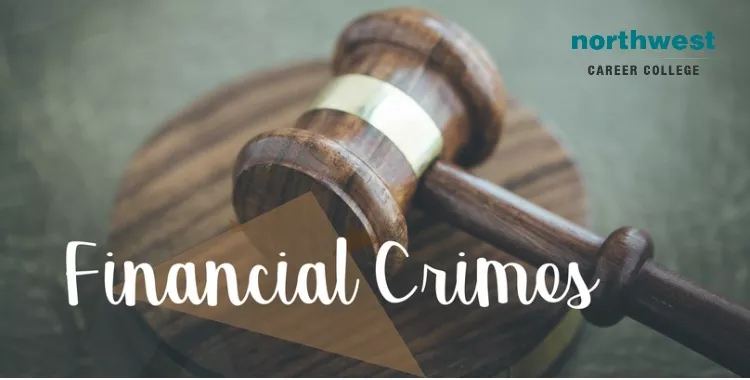What is financial crime?
- Paralegal Studies
- March 12, 2024
- 3.9k views
- 4 min read

Financial crime has become a growing concern for businesses and governments around the world. Over the past thirty years, the types and proliferation of financial crimes have drastically increased and the prevalence of economically motivated crime in many societies is a substantial threat to the development of economies and their stability.
In this article, we’ll be defining financial crime, exploring some of the most common financial crimes, and looking at who benefits from them.
Table of Contents
What Exactly Is a Financial Crime?
Generally, financial crime can be split into two different but connected types of conduct. The first type of financial crime is an activity that dishonestly generates wealth for those engaged in the crime. Insider trading is a good example of this first conduct.
The second connected activity is one that does not involve the dishonest taking of a benefit but instead protects that benefits or facilitates it being taken. Money laundering is an excellent example of this kind of conduct.
What Are the Main Types of Financial Crime?
The most common types of financial crime are:
- Fraud
- Electronic Crime
- Money Laundering
- Terrorist Financing
- Bribery and Corruption
- Market Abuse and Insider Dealing
- Information Security
Who Benefits from Financial Crime?
According to the International Compliance Association, the main beneficiaries of financial crime include:
- Organized criminals, including terrorist groups, are increasingly perpetrating large-scale frauds to fund their operations.
- Corrupt heads of state may use their position and powers to loot the coffers of their (often impoverished) countries.
- Business leaders or senior executives manipulate or misreport financial data in order to misrepresent a company’s true financial position.
- Employees from the most senior to the most junior steal company funds and other assets.
- From outside the company, fraud can be perpetrated by a customer, supplier, contractor, or by a person with no connection to the organization.
- Increasingly, the external fraudster is colluding with an employee to achieve bigger and better results more easily.
- Finally, the successful individual criminal, serial, or opportunist fraudsters in possession of their proceeds are a further group of people who have committed financial crime.
How Is Terrorism Linked to Financial Crime?
One of the less considered aspects of terrorist operations is their use of financial crime to find their activities.
As with any criminal organization, terrorist groups are always expanding the ways in which they can acquire funds, including:
- legitimate sources, such as the abuse of charities or legitimate businesses
- self-financing through their members or sympathizers
- criminal activity
- state sponsors
- activities in failed states and other safe havens
Because of the specific nature of terrorism, many established terrorist groups are able to draw on the services of finance professionals, such as bankers, accountants, and lawyers, who are sympathetic to their cause, to assist with and hide their activities.
Join One Of The Best Paralegal Schools In Las Vegas Today!
Here at Northwest Career College, we run the top paralegal program in Nevada, offering our students the skills and experience they need to successfully enter the field of paralegal work and position themselves to maximize their earnings.
Our Paralegal instructors are seasoned attorneys and highly trained professionals who are able not only to teach you the law but also to guide you through the many ways a paralegal integrates into a Las Vegas law practice.
We offer on-campus and online paralegal classes to accommodate your work and family schedule. Our Career Services team will work with you to help you find the best paralegal employment opportunity in Las Vegas. Call us today at (702) 403-1592 to find out what our paralegal program can offer you.



